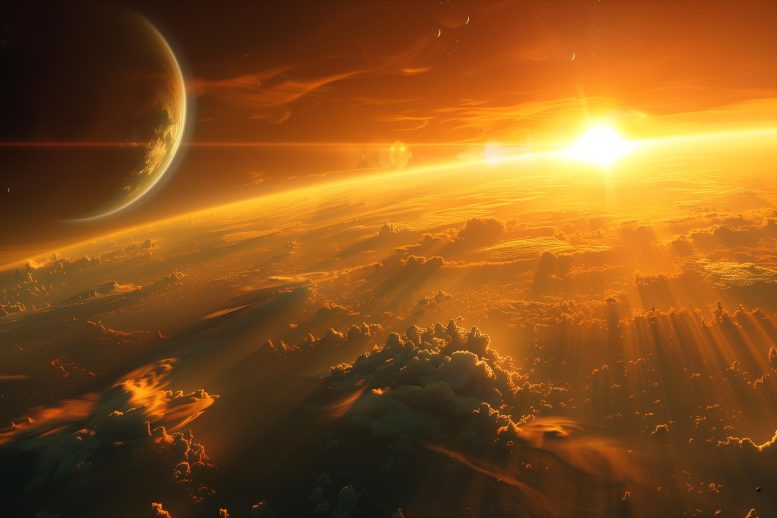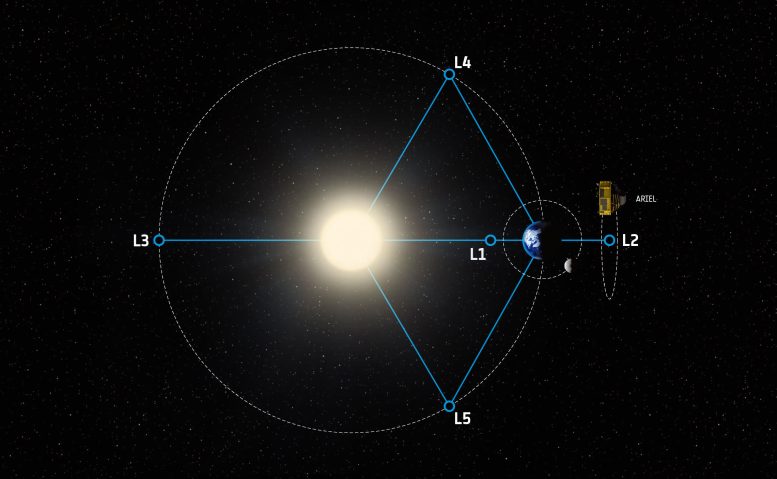
The Ariel Data Challenge 2024, hosted by UCL, invites data scientists and AI enthusiasts to analyze exoplanet atmospheres using data from the European Space Agency’s Ariel mission.
With a $50,000 prize pool, the competition aims to refine techniques for interpreting faint signals in noisy telescope data. Supported by a consortium including national space agencies and academic institutions, this challenge offers a significant opportunity for contributors to advance our understanding of exoplanets and prepare for Ariel’s 2029 launch.
The competition, based on the European Space Agency’s Ariel space mission and featured at the NeurIPS 2024 machine learning conference, will tackle one of astronomy’s most complex and important data analysis problems—extracting faint exoplanetary signals from noisy space telescope observations. It offers participants a unique chance to contribute to cutting-edge research in the field of exoplanet atmospheres, with a prize pool of $50,000.
Dr. Kai Hou (Gordon) Yip, Ariel Data Challenge Lead at UCL Physics & Astronomy, said: “We are excited to see the innovative solutions that the global data science community can bring to this formidable task.”
Global Collaboration and Support
This challenge has been made possible through a collaborative effort led by UCL Centre for Space Exochemistry Data, bringing together partners including Centre National D’études Spatiales, Cardiff University, Sapienza Università di Roma, and Institut Astrophysique de Paris.
The competition is sponsored by Centre National d’Etudes Spatiales, in collaboration with Kaggle Competitions Research Program. It also benefits from the support of a consortium of leading space agencies and institutions, including the UK Space Agency, European Space Agency, STFC RAL Space, and STFC DiRAC HPC Facility.

Dr. Caroline Harper, Head of Space Science, UK Space Agency, said: “By supporting this challenge, we aim to find new ways of using AI and machine learning to develop our understanding of the universe.
“Exoplanets are likely to be more numerous in our galaxy than the stars themselves and the techniques developed through this prestigious competition could help open new windows for us to learn about the composition of their atmospheres, and even their weather.
“The UK Space Agency’s investment in cutting-edge space science research is essential for supporting innovative missions like this, that can benefit people, businesses, and communities across the globe. We can’t wait to see the results.”
Dr. Theresa Rank-Lueftinger, Project Scientist for the ESA (European Space Agency) Ariel mission, said: “Every noisy signal from our space telescopes could hide the key to understanding remote atmospheres. Our job is to unlock that potential with innovative machine learning approaches. It will be amazing to see what the AI community comes up with!”
Understanding the Atmospheres of Exoplanets
The discovery of exoplanets has transformed our cosmic perspective, challenging conventional notions about the nature of the solar system, the Earth’s uniqueness, and the potential for life elsewhere.
As of today, astronomers are aware of over 5,600 exoplanets. However, detecting these worlds is only the initial step, as scientists seek to further comprehend and characterize the nature of these worlds by studying their atmospheres.
The European Space Agency’s Ariel Space Mission, whose scientific leadership is provided by UCL’s Professor Giovanna Tinetti, will be launched in 2029 and will complete one of the largest-ever surveys of these planets by observing the atmospheres of around one-fifth of the known exoplanets.
Paul Eccleston, Ariel Mission Consortium Manager, RAL Space, said: “It’s an exciting time for Ariel and for RAL Space involvement, where we’re due to start building the payload structural model in the coming months. It’s also a busy time for other parts of the consortium, including those that are pre-empting data challenges we might face after launch.
“The Ariel Data Challenge will be incredibly useful for us in this respect, but it’s also a great opportunity for participants to get involved and contribute to a very exciting mission. Good luck to those taking part!”
However, observing these atmospheres and deriving their properties is a formidable challenge. These atmospheric signals only account for a minute fraction of the starlight received from the planetary systems, and are regularly corrupted by instrument noise.
Professor Ingo Waldmann, Ariel Data Challenge co-lead based at UCL Physics & Astronomy, said: “Modern astrophysics poses big-data problems that can best, and sometimes only, be solved using modern AI techniques. This problem in particular lends itself to fresh approaches, and I am very excited to see what new solutions the AI community will come up with.”
The Ariel Data Challenge
The Ariel Data Challenge 2024 focuses on overcoming these noise sources, such as “jitter noise” caused by spacecraft vibrations. This noise, along with other disturbances, complicates the analysis of spectroscopic data used to study exoplanet atmospheres.
With support from DiRAC HPC Facility, mission scientists have meticulously produced the most accurate representation of Ariel observations to date, based on Ariel’s payload design and incorporating representative noise effects from in-flight data obtained by the James Webb Space Telescope.
Scientists involved in the Ariel mission now seek novel methods to push the boundaries of current data analysis approaches – innovative solutions that can effectively suppress these noise sources and extract vital signals from exoplanet atmospheres.
Competition Details and Timeline
The competition is open now until late October. Winners will be invited to present their solutions at the NeurIPS conference, with cash prizes available for the top six solutions.
It will be the fifth installment of the Ariel Machine Learning Data Challenge, following four competitions in the past five years. The Ariel Data Challenge attracts around 200 participants from across the world every year, including entrants from leading academic institutes and AI companies.
This challenge and its predecessor took a bite-sized aspect of a larger problem to help make exoplanet research more accessible to the machine learning community. The challenge is not designed to definitively solve the data analysis issues faced by the mission outright but provides a forum for discussion, encourages future collaborations, and helps the Ariel team to be prepared with the best possible data analysis methods by the time the mission flies.
More details about the competition and how to participate can be found on the Ariel Data Challenge website.